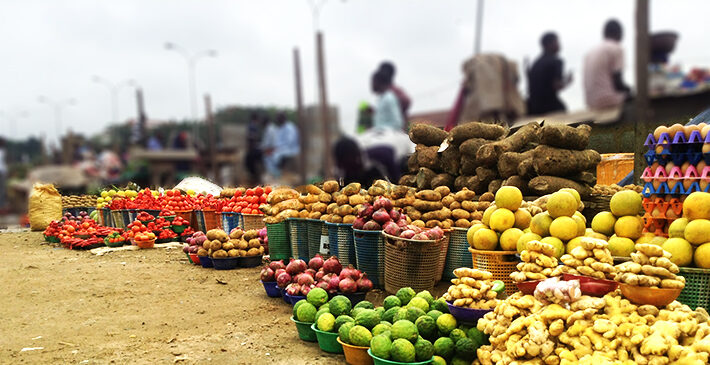As Nigeria races to meet its food security targets, escalating insecurity across major agricultural zones is undoing years of progress.
Recent data points to a sharp correlation between rising violence and declining food output, raising urgent questions about the feasibility of Nigeria’s food security ambitions.
For a nation that boasts fertile lands and a youthful workforce, becoming food self-sufficient is important. However that dream is rapidly being undermined by an upsurge in violent conflict, banditry, and kidnapping, particularly in key farming states such as Benue, Kaduna, Zamfara, Niger and Plateau.
Farmers are abandoning their lands in droves, rural communities are becoming ghost towns and food supply chains are being severed at alarming rates.
The resurgence of attacks on farming communities is not new, but its increasing intensity and frequency are. According to data from the Nigerian Security Tracker, over 1,200 people were killed in violent incidents in the first quarter of 2025 alone, many of them in farming communities.
As insecurity spreads, entire planting seasons would be lost, with farmers too fearful to return to their fields.
The economic fallout is palpable. Nigeria’s inflation rate remains stubbornly high, largely driven by food inflation, which stood at over 30 per cent year-on-year as of March 2025. The reduced supply of locally grown produce has forced greater reliance on imports—putting additional pressure on the naira and foreign reserves.
Although the federal government has launched several programmes in recent years, including the National Agricultural Growth Scheme and Agro-Pocket (NAGS-AP) programme, the National Agricultural Technology and Innovation Policy (NATIP) and the Anchor Borrowers’ Programme in the past, aimed at boosting food production. But these initiatives are faltering under the weight of insecurity.
Efforts to deploy military task forces to protect rural areas have had limited success. Many analysts argue that without addressing the root causes of the violence, land disputes, poverty, crops and livestock farmers conflict, Nigeria may never fully secure its farmlands.
Nigeria cannot afford a prolonged food crisis. Experts warn that failure to secure the agricultural sector now could lead to a humanitarian disaster in the near future.
This is even as an estimated 30.6 million Nigerians including 150,978 internally displaced persons (IDPs) across 26 states and the Federal Capital Territory (FCT) are expected to experience a food crisis or worse between June and August 2025.
According the February – March edition of the food and nutrition security analysis in Nigeria, known as Cadre Harmonise (CH) despite recent declines in food and commodity prices, the lean season is projected to push millions into severe food consumption deficits, primarily due to disrupted livelihoods caused by conflicts and insecurity, climatic shocks and the lingering effects of macroeconomic reforms by the federal government in 2024.
The report which is conducted by Federal Ministry of Agriculture and Food Security in collaboration with the Food and Agriculture Organisation of the United Nations (FAO) and other partners also indicates that livelihoods and nutrition are under pressure with some of the most affected areas in Sokoto, Zamfara, Borno, Yobe and Katsina State.
Further analysis of the survey indicates that malnutrition rates are reaching alarming levels, particularly in the Northwest and Northeast.
Critical levels of acute malnutrition at phase 4 have been recorded in several local government areas including central Borno, northern Yobe and parts of Sokoto.
In the report, areas such as Mobbar and Nganzai in Borno, Mashi in Katsina and urban centers like Maiduguri and Jere are also facing dire nutrition crises with 178,000 people being children, pregnant and breastfeeding women from Abadam, Guzamala, Kukawa and Marte most at-risk.
The FAO raised concerns over worsening food insecurity in Nigeria with economic hardship, climate disasters and security challenges as major threats to livelihoods.
FAO Country Representative to Nigeria and ECOWAS, Kouacou Dominique Koffy, said Nigeria must ensure that every vulnerable community is assessed so that no one is left behind, adding that without sufficient data, effective planning and response become impossible.
The agency called for sustained humanitarian activities in the affected areas and urged the importance of early warning systems in preventing full-blown food crises.





